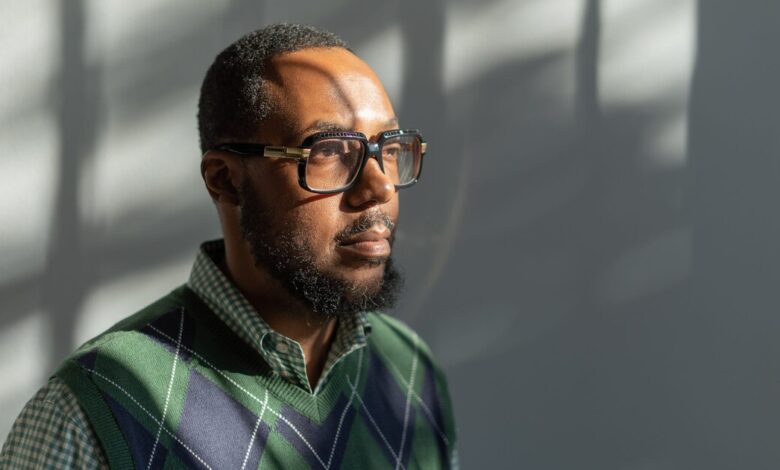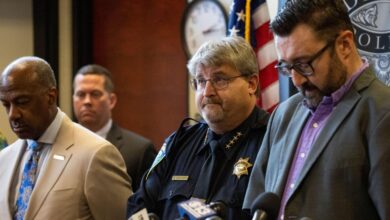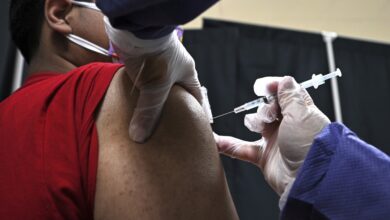Students Say Baker College Set Them Up to Fail. Now the Feds Are Investigating.

[ad_1]
The U.S. Department of Education has begun an investigation into a Michigan private college that aggressively markets its programs to students but only graduates 22 percent of them.
The investigation was disclosed in a notice last week from Baker College’s accreditor, the Higher Learning Commission, which assigned the college its governmental investigation status “based on information indicating that the U.S. Department of Education, through the Office of Federal Student Aid, has initiated a formal investigation of the institution related to its recruitment and marketing practices.”
A department spokesperson declined to comment. The Higher Learning Commission has not opened an investigation of its own. Baker has to file an update on the investigation with HLC by August 18. It is not required to notify students of the investigation.
Baker College did not return requests for comment.
The move comes in the wake of a joint report last year by the Detroit Free Press and ProPublica that found a slew of troubling practices at Baker College:
- Baker spent more on marketing than financial aid.
- Less than a quarter of its students graduate.
- Seventy percent of Baker students who took out federal student loans have problems making payments two years after leaving college.
- An exceptionally large number of former students with loans have filed claims with the federal government that they were defrauded or misled by the college.
- According to federal data, 10 years after enrolling, fewer than half of Baker students made more than $28,000 a year.
The investigation appears to be part of the restored investigative unit of the Office of Federal Student Aid. The office had been disbanded under Education Secretary Betsy DeVos in 2016; the Biden administration announced its restoration in October 2021. At the time, the department said the investigations unit would look at “institutions’ compliance with federal laws, regulations, and the terms of program participation.” If the Baker investigation is coming from this office, it could be the first case to have any public mention.
Baker was founded as a for-profit institution in 1911 but became a nonprofit in 1977.
In the early 2000s, Baker was Michigan’s largest private college, with campuses spread out across the state. It had an open enrollment policy and heavily advertised across the state as “a haven for those who dream big.”
The college spent big to get their message across.
In the 2019-20 fiscal year, it spent $9.7 million on advertising but handed out only $8.6 million in institutional aid, audited financial records show. In 2020-21, it spent $8.5 million on marketing and $8.3 million on institutional financial aid. In 2021-22, it spent $5.8 million on marketing and $7.3 million on institutional aid.
Many students told the Detroit Free Press/ProPublica last year that the college encouraged them to take out vast amounts of student loans. A former student said he was encouraged to take out loans far outstripping his college costs because he might need money for family expenses and even Christmas presents. Students also complained about degree programs being abruptly canceled and struggles to find jobs in their fields after graduation.
The college is also heavily reliant on Pell Grants and federal student loans. Nearly three-quarters of Baker’s tuition revenue comes from federal student loans and Pell Grants.
The college’s enrollment has dropped precipitously in recent years. According to federal data, the college had about 11,600 undergraduates in the fall of 2017. In the fall of 2021, the college had about 4,600 undergraduate students. It has closed and consolidated a number of campuses in recent years, even as it was building a new flagship campus in a tony Detroit suburb — as part of a strategy to chase more traditional and affluent students.
Baker College also has a byzantine governance structure. The Detroit Free Press/ProPublica investigation found records showing the president of the college was a member of the Board of Trustees. At one point, a retired Baker president served as chairman of the board while simultaneously drawing more than a million dollars from the college for five years of part-time work.
With the enrollment drop, the college has struggled financially. Audited financial statements for the year ending on August 31, 2022, show that tuition revenue was down $12 million from the previous year, to $43 million, and that officials have made corresponding cuts to educational spending.
[ad_2]
Source link






